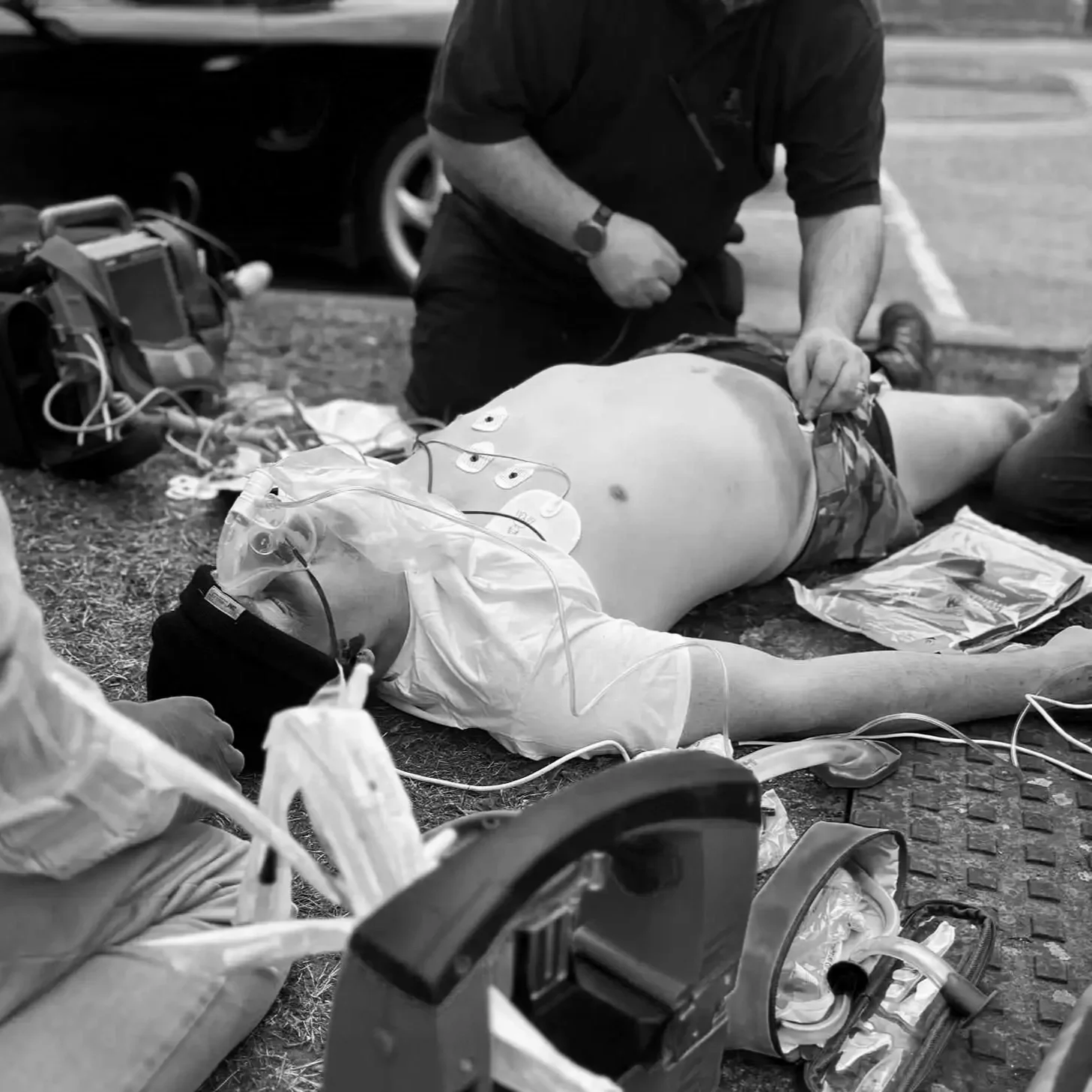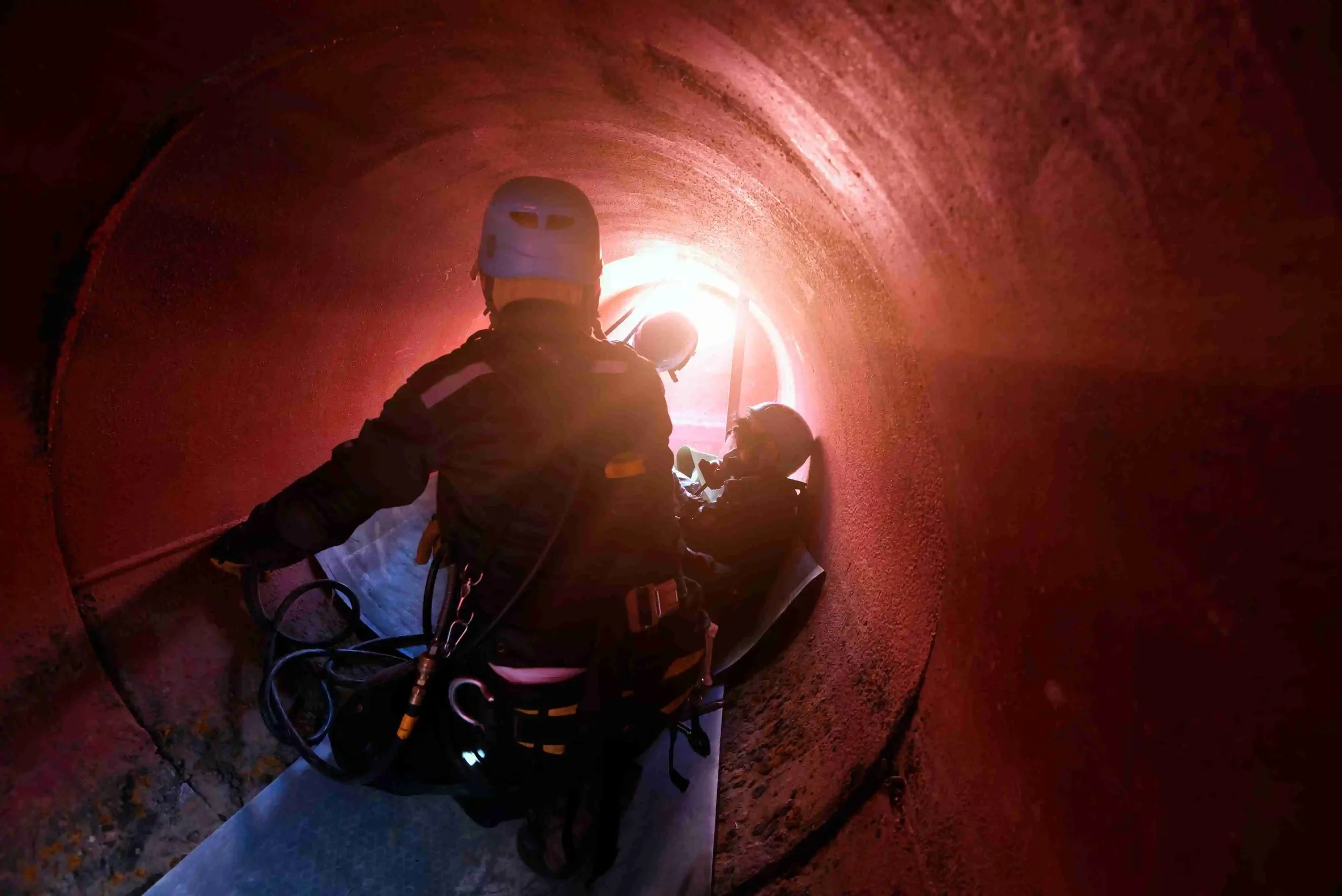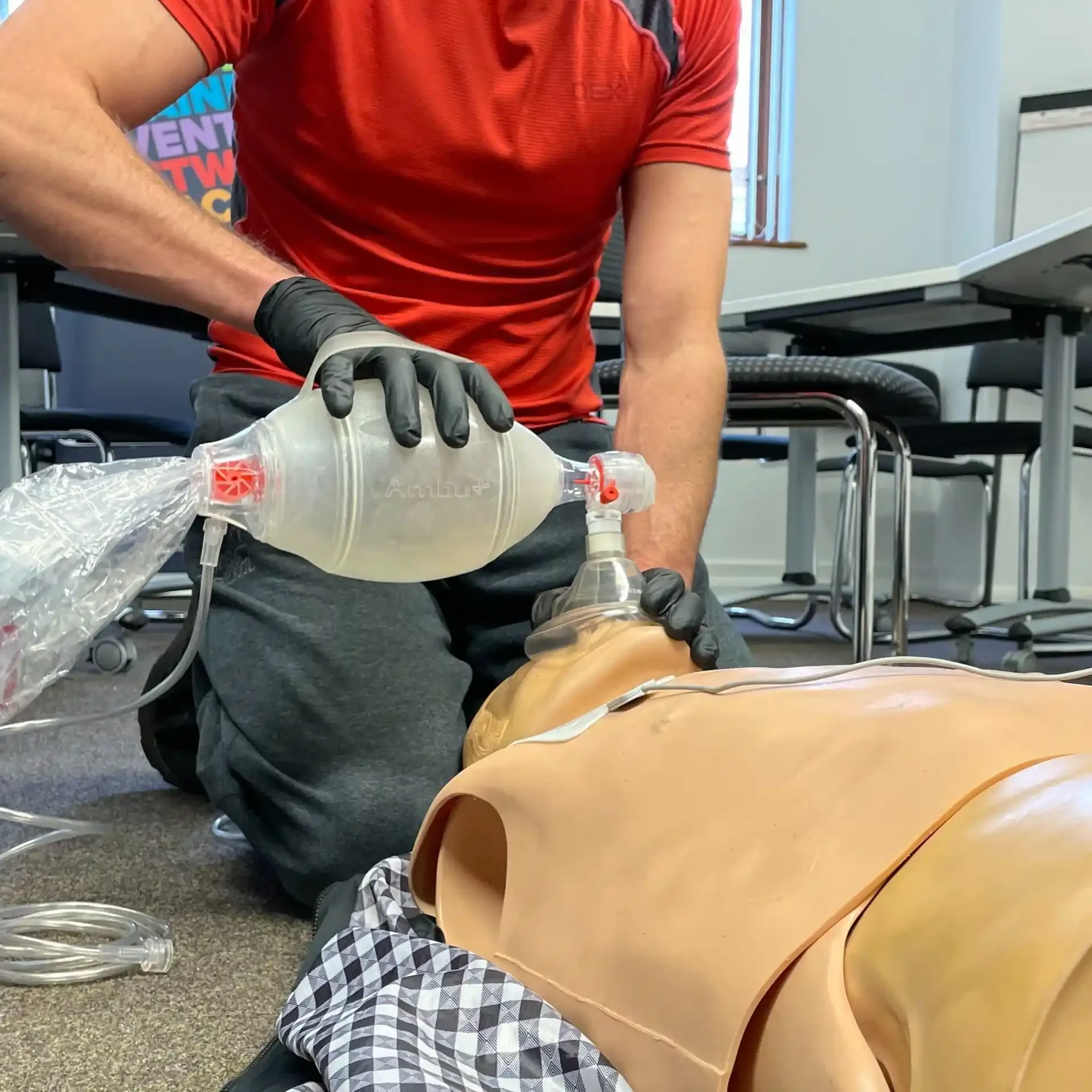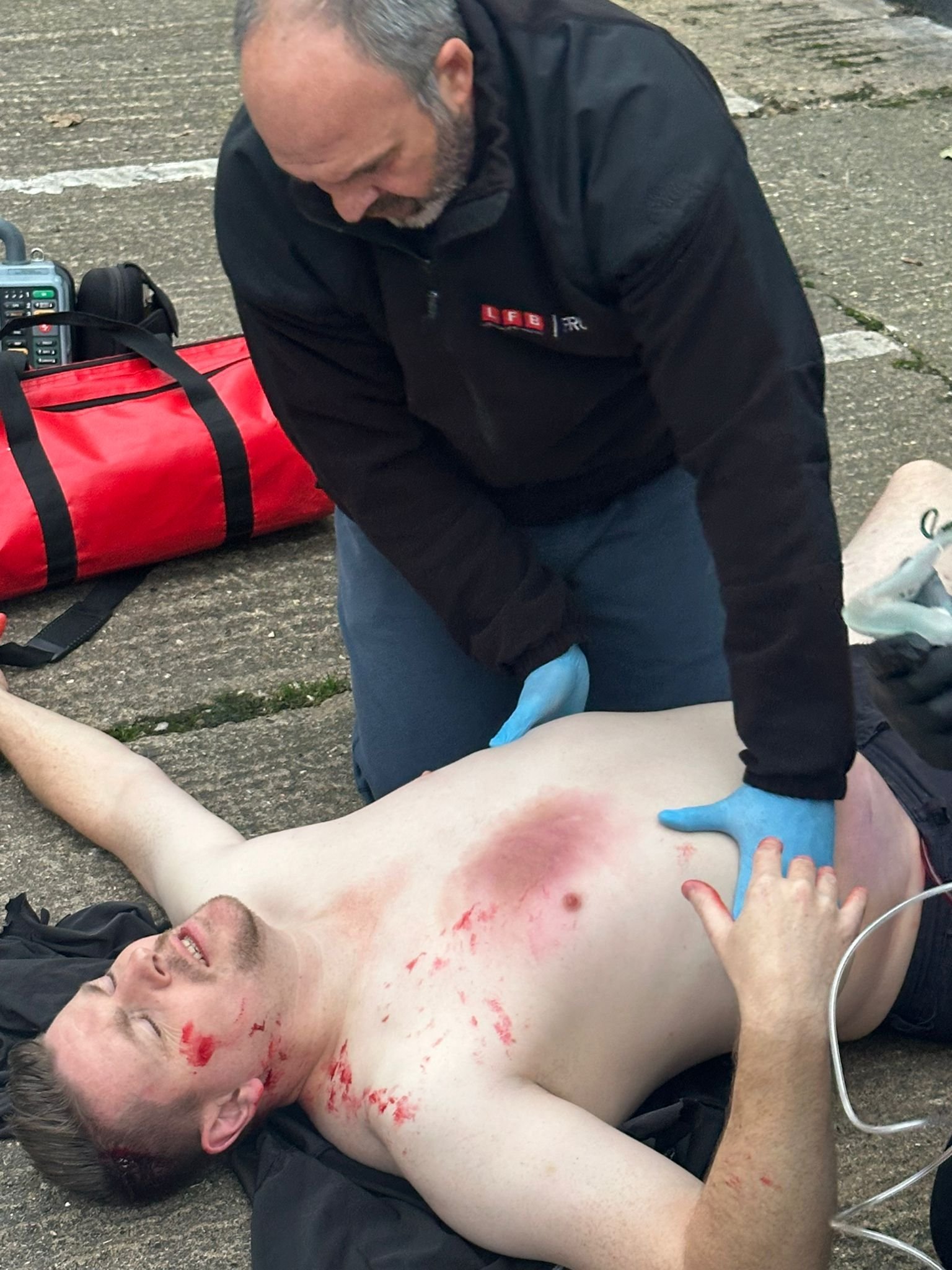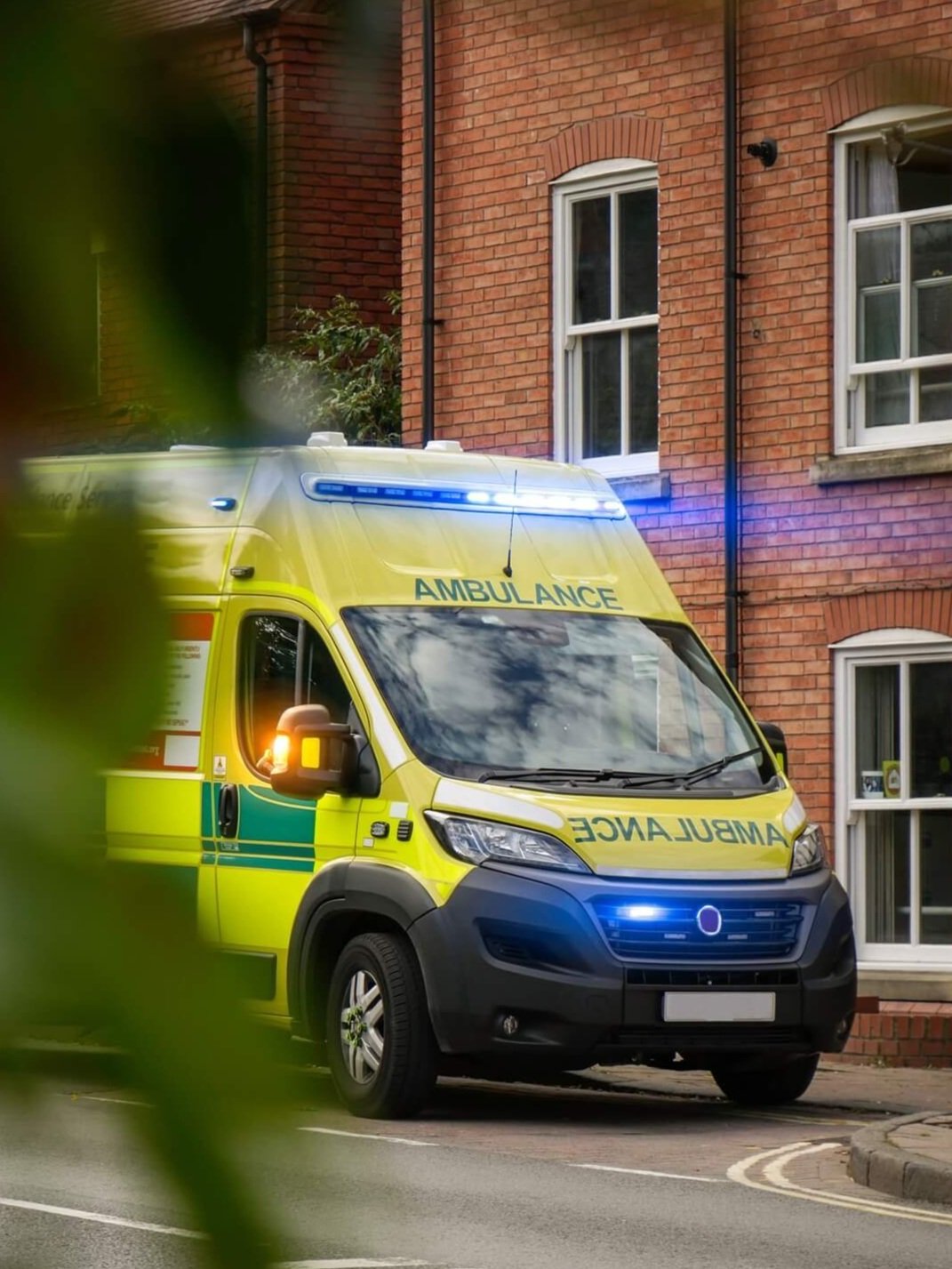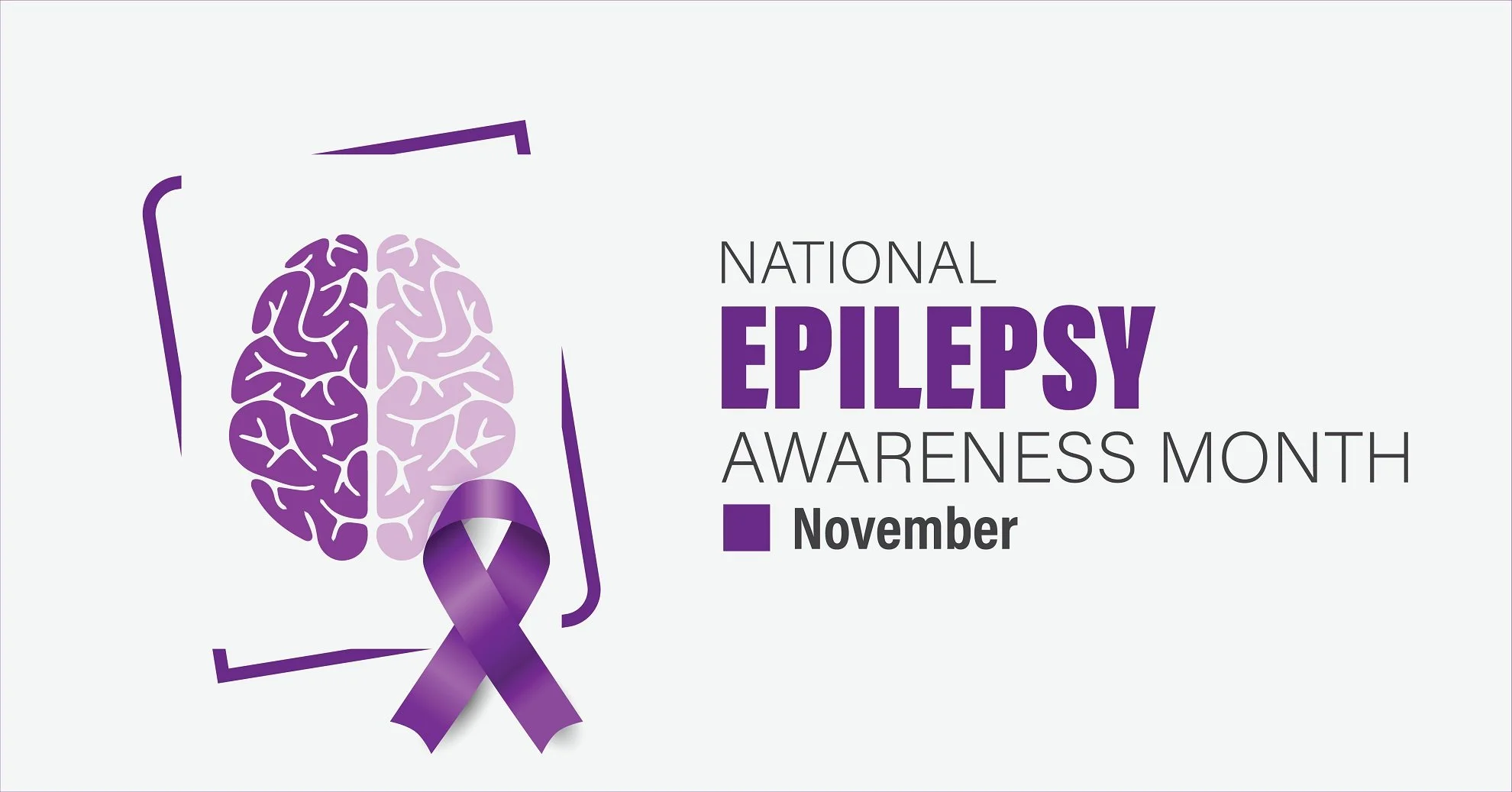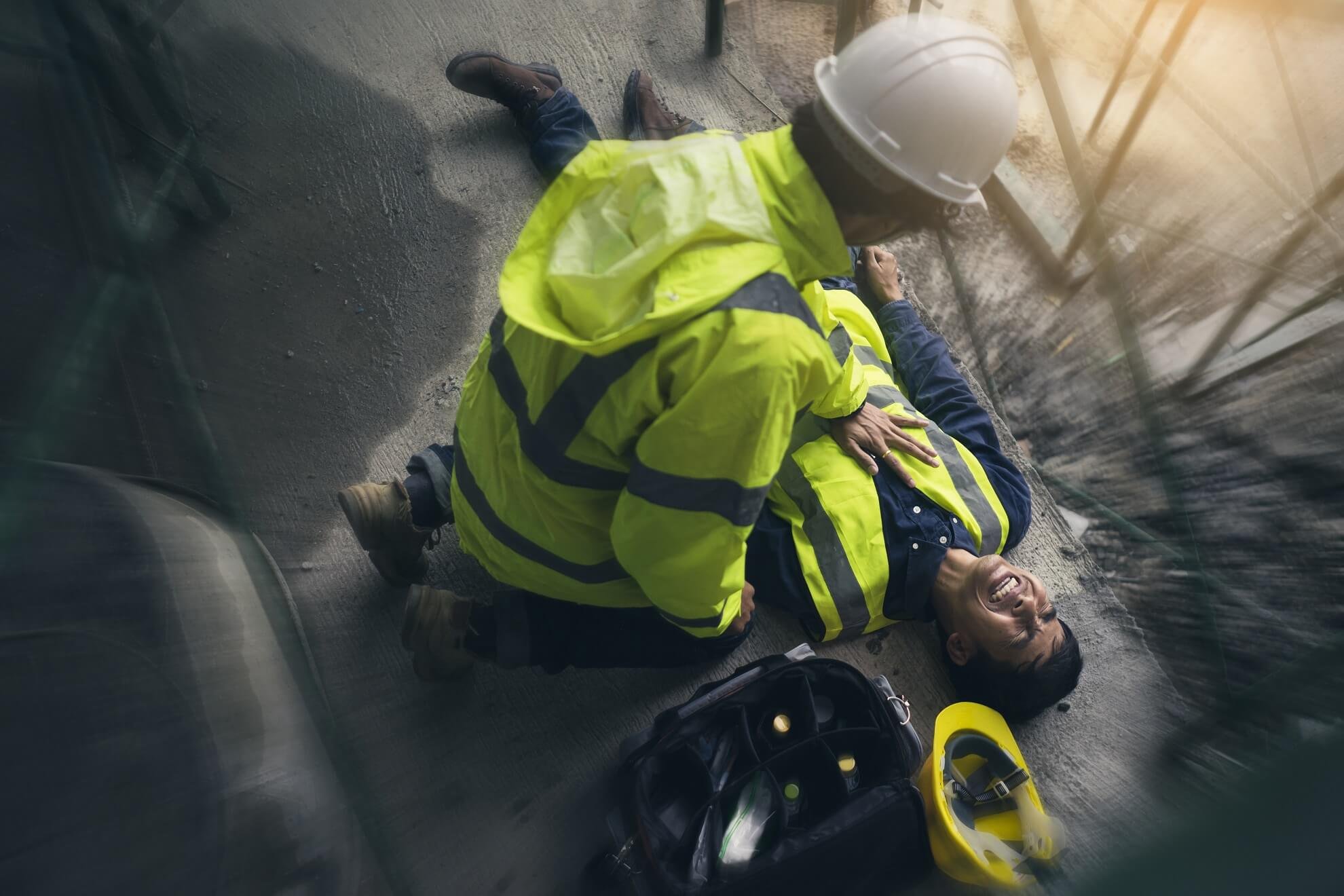Why Specialist First Aid Training Matters on Farms
Farming is one of the UK’s most rewarding jobs, but it is also one of the most dangerous. The Health and Safety Executive (HSE) consistently records agriculture as one of the highest-risk industries, with injury and fatality rates higher than construction.
Every year, farmers and farm workers are injured by machinery, livestock, vehicles, falls from height, or chemical exposure. Farms are often in remote locations, so an ambulance can take longer to arrive. Those first few minutes are critical, and having the right first aid skills on site can save lives.
Why General First Aid Isn’t Always Enough
Standard first aid courses cover CPR, choking, bleeding, burns, and medical emergencies like seizures or heart attacks. These are important, but farm work brings additional risks that aren’t always covered.
Picture this:
A stockman is knocked against a gate by a bull, suffering a chest injury and struggling to breathe.
A farmhand gets their arm trapped in machinery, causing a severe bleed.
A worker falls from a bale stack, with possible spinal injuries.
In each case, the right knowledge and confidence can make the difference while waiting for emergency services.
Our Training Options for Farms
At NR Medical Training, all courses are delivered by registered Paramedics, EMTs, and nurses who’ve seen these incidents first-hand. We don’t just deliver theory - we train you with realistic kit, scenarios, and solutions that work in rural settings.
Here are the options we recommend for farms:
1 Day – Emergency First Aid at Work (EFAW) for Farms
A nationally recognised Level 3 Qualsafe Awards qualification.
Recognised as HSE-compliant and suitable for many farm environments.
Adapted to agricultural risks and remote response challenges.
Focused on essential, life-saving interventions you might need in those first critical minutes.
2 Day – Enhanced Trauma & First Aid for Farms
Includes the accredited EFAW qualification.
Adds fully bespoke trauma training built around the specific risks of your farm.
Covers catastrophic bleed control, crush injury treatment, and advanced trauma management.
Ideal for lone workers or anyone handling heavy machinery or livestock.
3 Day – First Aid at Work (FAW) for Farms
A nationally recognised qualification for higher-risk workplaces.
Content adapted to farming hazards with extended scenarios and assessments.
Includes additional content, plus more in-depth case-based training.
Best suited to large farms, estates, and agricultural businesses with higher staffing levels.
Being Prepared Every Day
Training is one part of the picture. Being prepared day to day matters just as much. Practical steps include:
First aid kits in tractors, workshops, barns, and offices. HSE first aid kit guidance.
Lone workers carrying communication devices and knowing self-help techniques.
Refresher training every year to keep confidence sharp.
Emergency access planning: Mark your farm entrances with what3words and label them (A, B, C). This helps direct ambulances quickly to the right spot.
Compliance: If you are Red Tractor certified, first aid provision will be reviewed during audits.
Why Farmers Choose NR Medical Training
Clinician-led: Every course taught by Paramedics, EMTs, and nurses.
Farm-focused: Content adapted to agricultural risks, not generic workplaces.
Hands-on learning: Real kit and realistic scenarios, not just theory.
Compliance assured: Courses meet HSE standards and align with Red Tractor audits.
“The right training gives farmers the confidence to act quickly when every second counts. We have seen too many lives changed forever because the wrong help came too late. On a farm, you are often the first and only responder. Our goal is to make sure you feel ready for that moment.”
Next Steps
Not sure which course is right for your farm? Explore our First Aid for Farms courses or get in touch and we will help you choose the most suitable option.
FAQs: Choosing Farm First Aid Training
-
It depends on your risks. Smaller family farms may only need the 1 Day Emergency First Aid at Work (EFAW) course, while larger farms or those using heavy machinery often benefit from the 3 Day FAW. If you’re handling livestock, vehicles, or working at height, we strongly recommend the 2 Day Enhanced Trauma & First Aid course.
-
Yes, in most cases. HSE doesn’t give a fixed number, but you should account for holidays, shift work, and lone working. Larger farms usually need multiple people trained so that cover is always available.
-
This course is unique to NR Medical Training and is run by a minimum of two Paramedics or EMTs. It goes beyond standard first aid by focusing on crush injuries, catastrophic bleeding, and managing trauma when ambulances may be delayed.
-
We recommend marking all farm entrances and key access points with what3words locations. Keep these written down in the farmhouse, staff rooms, and on emergency plans. During an emergency call, you can direct the crew to the exact gate or track.
-
Yes. Anyone working on a farm should know at least the basics of first aid. Many employers choose to train seasonal workers on the 1 Day EFAW so they can respond confidently if needed.
-
Yes. Larger operations usually face more complex risks and more staff to manage. The 3 Day FAW is often required, with Enhanced Trauma added for teams using high-risk machinery or livestock handling.
-
Even though certificates last three years, farms are high-risk environments. We recommend annual refreshers so skills stay sharp and staff remain confident.








